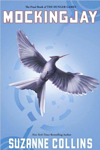
Search
Categories
Famous Authors
Top Selling Books

Book Home ![]() Books Information
Books Information ![]() That Hideous Strength
That Hideous Strength
That Hideous Strength
That Hideous Strength is a novel by C. S. Lewis first published in 1945. It is the third in Lewis's theological science fiction series or Space Trilogy featuring the philologist Elwin Ransom, following on from Out of the Silent Planet and Perelandra (a.k.a. Voyage to Venus). It is heavily influenced by the writing of Lewis's friend Charles Williams.
This final novel in the trilogy is a parable of good and evil, set in a small English university town in which a research agency, N.I.C.E. (National Institute for Coordinated Experiments), is actually a front for Satanic forces.
The story centers around a young professor and his wife who are affected in different ways by the so-called science being practiced at the Institute. The professor is targeted for recruitment into the "objectivists", the inner circle of researchers who associate directly with the diabolic intelligences. One of their reasons for recruiting him is to get control of his wife, who is plagued by disturbing clairvoyant dreams which she lacks the wisdom to interpret. However, she is driven, partly by N.I.C.E.'s attempt to arrest her, to join a small community of people in the service of the supernatural powers opposing the Institute.
This community is nominally led by Ransom, still suffering from the wound he received from Professor Weston in his climactic fight on Venus. Here he appears as the Pendragon, the modern inheritor of the role of King Arthur. His Masters' plan is to use a mortal as a conduit for their power. However, Ransom's soul is "virginal" in this way, so he must recruit an older and more ambiguous agent, who has previously dealt with supernatural powers: the reawakened wizard Merlin.
This novel, unlike the previous two, shows the influence of Charles Williams to the extent that it might be considered either homage or pastiche. Similarities to Williams' supernatural thrillers include the non-exotic setting, the gathering of an informal team of heroes rather than a single protagonist, the focus on a temporarily estranged married couple, and the use of Arthurian legend. There are also brief nods to J. R. R. Tolkien, and the character MacPhee is an affectionate parody of Lewis's former teacher W. T. Kirkpatrick.
Another significant difference of this final volume is that, although the story is told from the perspective of multiple characters (including a bear!), Ransom is not among them, so we do not really get an in-depth understanding of his view of human society in light of his experiences among the angels and the sinless mortal beings who live on the other worlds.
The novel's central theme—that pure materialism is incompatible with ethics and, ultimately, with human life—is, as Lewis stated, based on his own earlier philosophical treatise The Abolition of Man. An extreme example is his portrayal of the leaders of N.I.C.E., two of whom (Frost and Wither) have become nihilists with no recognizably human motives as a result of their quest for a purely objective mode of thought. The novel is also Lewis's most overtly political fiction, illustrating how state/industry/academic alliances and manipulation of the mass media might move England toward fascism.